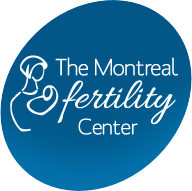Ovarian Stimulation
Ovulation induction with anti-estrogens
This is the simplest ovarian stimulation regimen. It is used as the first line treatment in patients with unexplained infertility or those with irregular periods. By either decreasing the level of estrogen in your body or by blocking your estrogen receptors you will produce more follicle stimulating hormone (FSH).
FSH directly stimulates your ovaries, and by increasing your level of FSH we can facilitate ovulation. The advantages of oral anti-estrogen medications such as clomiphene citrate (Clomid, Serophene) or letrozole (Femara) include ease of use, low cost, and low risk of multiple pregnancy (8% or less). When clomiphene citrate or letrozole are combined with intrauterine insemination for couples with unexplained infertility the per cycle chance of pregnancy is between 8-10%. Side effects may include hot flushes, night sweats and mood changes such as irritability, anxiety or depression. Very rarely clomiphene citrate may also be associated with visual disturbances. If your treatment plan includes anti-estrogen medications then call us as soon as your menstruation starts to book an ultrasound on cycle day 2, 3 or 4.
If your ultrasound is normal then you will start the medication and a follow-up ultrasound will be done around day 9-11 to measure the number and size of your follicles and the thickness of the uterine lining. Once you have a follicle that is likely to contain a mature egg we will provoke ovulation with an injection of HCG, and time your intrauterine insemination.
Ovarian Stimulation with gonadotropins (FSH)
This is a second line treatment. It is used primarily for patients who do not ovulate in response to anti-estrogens, or couples who have already tried oral medications but have not conceived. By directly stimulating the ovary with FSH substantial numbers of follicles may be supported to grow. This can then result in the release of multiple mature eggs at the time of ovulation.
The advantage of FSH injections is the higher chance of pregnancy (generally between 10-15% per cycle for couples with unexplained infertility, and possibly higher for women with irregular menstrual cycles). The disadvantages of FSH injections include need to learn and perform daily self-injections, the need for frequent monitoring, the cost of the medication and the risk of multiple pregnancy (as high as 30%). Side effects are the result of a multiple follicular development and may include irritability, bloating or lower abdominal tenderness. If you are prescribed this treatment you should call us as soon as your menstruation starts to book an ultrasound scan between day 2 and 4 of your menstrual cycle. The purpose of this scan is to exclude the presence of ovarian cysts.
If there are no cysts you will either start taking the FSH injections directly, or we may first initiate treatment with an anti-estrogen (letrozole) and then overlap that treatment with your FSH injections. The dose of injections depends on your age, diagnosis and response to medications in previous treatment cycles. Regular follow-up ultrasound scans will then be done to check your response to medication. We will measure the number and the size of follicles and the thickness of the uterine lining. When one or more of your follicles reaches 17mm in diameter you will be given an injection of hCG to provoke ovulation.
